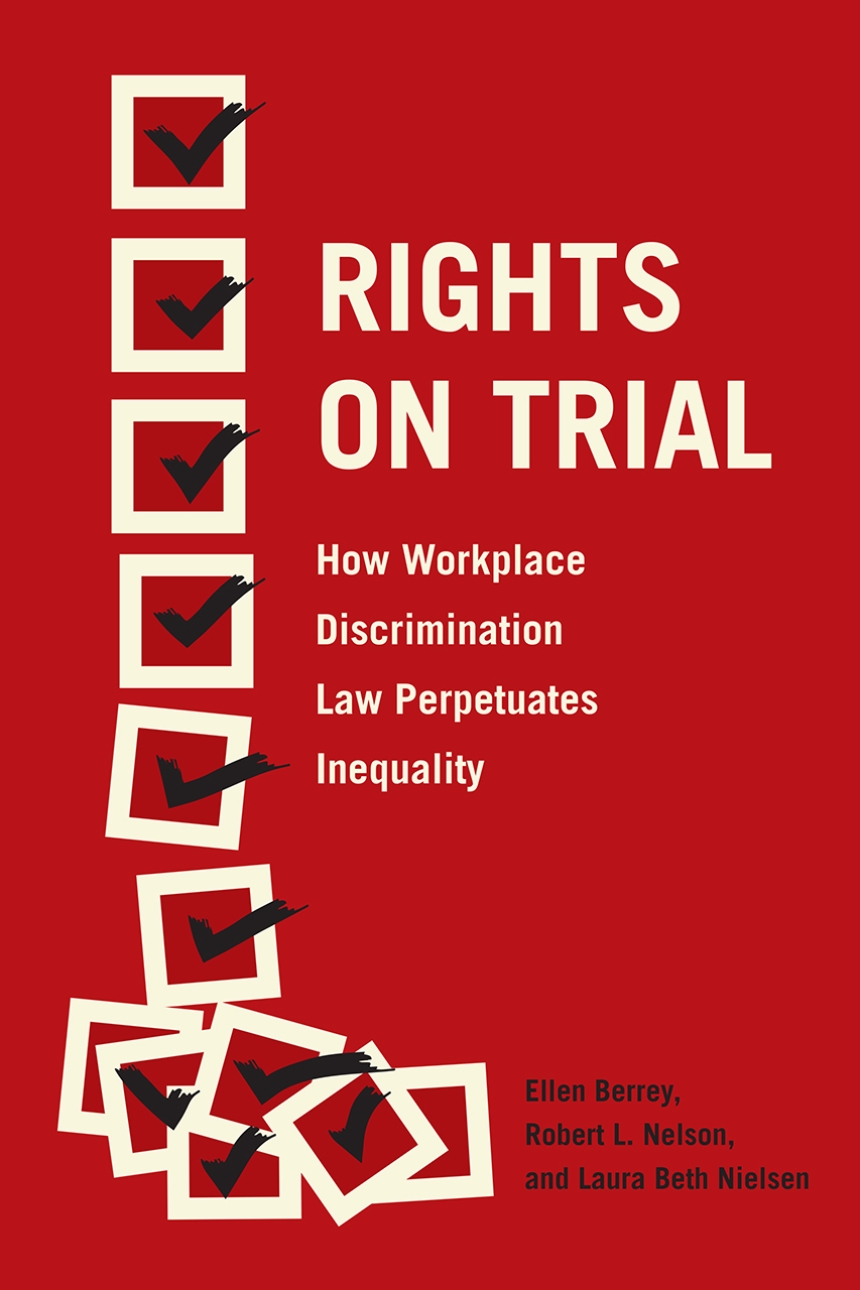Rights on Trial
How Workplace Discrimination Law Perpetuates Inequality
On the surface, America’s commitment to equal opportunity in the workplace has never been clearer. Virtually every company has antidiscrimination policies in place, and there are laws designed to protect these rights across a range of marginalized groups. But, as Ellen Berrey, Robert L. Nelson, and Laura Beth Nielsen compellingly show, this progressive vision of the law falls far short in practice. When aggrieved individuals turn to the law, the adversarial character of litigation imposes considerable personal and financial costs that make plaintiffs feel like they’ve lost regardless of the outcome of the case. Employer defendants also are dissatisfied with the system, often feeling “held up” by what they see as frivolous cases. And even when the case is resolved in the plaintiff’s favor, the conditions that gave rise to the lawsuit rarely change. In fact, the contemporary approach to workplace discrimination law perversely comes to reinforce the very hierarchies that antidiscrimination laws were created to redress.
Based on rich interviews with plaintiffs, attorneys, and representatives of defendants and an original national dataset on case outcomes, Rights on Trial reveals the fundamental flaws of workplace discrimination law and offers practical recommendations for how we might better respond to persistent patterns of discrimination.
See the online appendix, read the introduction, and see the official video trailer for the book.
320 pages | 2 halftones, 7 line drawings, 10 tables | 6 x 9 | © 2017
Law and Legal Studies: Law and Society
Political Science: Race and Politics
Sociology: Formal and Complex Organizations
Reviews
Table of Contents
List of Tables and Figures
Online Appendix
Part I. Introduction
Chapter 1. Introduction: Putting Rights on Trial
Chapter 2. Fifty Years of Employment Civil Rights
Chapter 3. A Quantitative Analysis of Employment Civil Rights Litigation: Case Characteristics, Plaintiff Characteristics, and Legal Outcomes
Part II. Narratives of Employment Civil Rights Litigation
Chapter 4. Workplace Wars: The Origins of Employment Civil Rights Lawsuits in the Workplace
Chapter 5. Representation and Race: Finding a Lawyer, Screening Clients, and the Production of Racial Disparities
Chapter 6. Representing Rights: Lawyer-Client Relationships
Chapter 7. Right Right, Wrong Plaintiff: Adversarial Conflict and the Disavowal of Discrimination
Chapter 8. Win, Lose, or Draw: Perspectives on Case Outcomes
Part III. Conclusion
Chapter 9. Stereotyping and the Reinscription of Race, Sex, Disability, and Age Hierarchies
Chapter 10. The Voices of Employment Civil Rights
Acknowledgments
Appendix
Notes
Awards
Sociology of Law section, American Sociological Association: Distinguished Book Award
Honorable Mention
